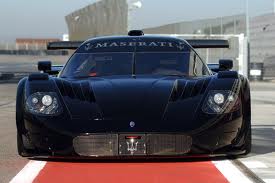 As expected more and more countries are lining up to challenge the unreasonable protective measure by the Brazilian government to increase the Tax on Industrialised Products (IPI). Last month, Brazil raised the so-called IPI by 30 percentage points for imported cars that aren’t made with at least 65% local content. Excluded are those from companies that produce locally or in Mercosul partners. Established carmakers such as Volkswagen, Fiat,General Motors Co. and Ford, which together account for about three-fourths of car sales, had complained about the influx of cars as Brazil’s currency strengthened and demand jumped.
As expected more and more countries are lining up to challenge the unreasonable protective measure by the Brazilian government to increase the Tax on Industrialised Products (IPI). Last month, Brazil raised the so-called IPI by 30 percentage points for imported cars that aren’t made with at least 65% local content. Excluded are those from companies that produce locally or in Mercosul partners. Established carmakers such as Volkswagen, Fiat,General Motors Co. and Ford, which together account for about three-fourths of car sales, had complained about the influx of cars as Brazil’s currency strengthened and demand jumped.
Japan may be the first country to challenge at the World Trade Organization the Brazilian this increase in the IPI tax. In addition to Japan, South Korea also objected to the increase for imported cars decided by the Brazilian government. The two countries that are producers of automobiles, said that Brazil violates the agreement of trade-related investments as well as an article of the World Trade Organization (WTO) on national treatment of companies.
Both Korea and Japan has decided to challenge the measure of the Brazilian government in the Market Access Committee , which periodically examines new barriers raised by the countries. The report itself noted that the Japanese action could pave the way for other governments complain of Brazil, as it did. Japan will ask judges at the WTO to examine the measure. Though most Japanese car makers produce locally, exempting them from the tax, the country’s government is concerned that a similar measure could be repeated by other countries. The issue was raised with Brazil during a meeting of the WTO’s market access committee on Friday, said Atsushi Saito, Japan’s representative at the Geneva-based organization. In addition to Japan, members from South Korea, Australia, Europe and the U.S. also voiced their concerns, Saito said. When asked if Japan planned to file a formal complain with the WTO, Saito replied in an email that “If you understand that ‘formal complaint’ is part of a dispute settlement process, we don’t have any plans at this stage.”
More than 20% of cars sold this year are imported, up from just 5% in 2005, according to automakers association Anfavea. But the tax hike was challenged by car companies who are building or plan to build factories in the country and who say that because they won’t be able to meet the full local content requirements during the first few years of operations, they would cancel plans to bring production onshore.
Government willing to negotiate?
The government has since said it would negotiate with those companies to reach a compromise. This is also confirmed by China’s JAC Motors. JAC Brazil says it has finalized a deal to build a $500 million car factory in Brazil. JAC Brazil says in an emailed release the factory will be built in the northeastern state of Bahia. The plant should be ready by 2014.The automaker said in August it wanted to build a factory in Brazil. But those plans were questioned after Brazil hiked the import taxes on foreign cars, threatening the Chinese-made vehicles JAC ships to Brazil. JAC says in its Friday statement it hopes the decision to invest will convince officials to scrap that tax hike.
BMW considers building a factory in the country, but..
BMW asked Brazil’s Trade and Development Minister Fernando Pimentel to reevaluate the increase in the IPI tax as it considers building a factory in the country, O Estado de S. Paulo reported, citing Henning Dornbusch, chief executive officer of BMW’s Brazil unit. The Brazilian government’s decision to raise the tax on cars with less than 65 percent of their parts produced in Brazil may lead BMW to build its plant in China, India or Russia instead, according to the newspaper. The company will announce its decision by November, O Estado said. The Ministry of Trade and Development’s press office said Pimentel hasn’t made any commitment relating to BMW’s request because the decision must be made in conjunction with Finance Minister Guido Mantega, O Estado said.



